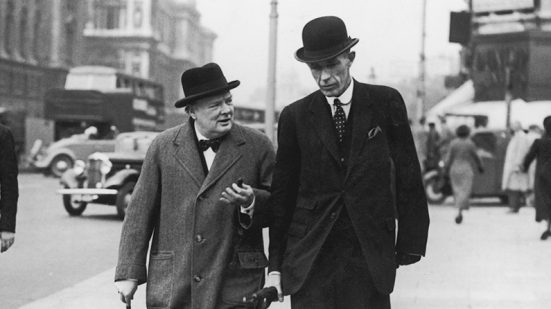
“I don’t want [my views] disturbed by any bloody Indian”: Was it Churchill?
“I am quite satisfied with my views of India. I don’t want them disturbed by any bloody Indian.” Thus Winston Churchill said (or is alleged to have said) to Lord Halifax née Lord Irwin née Edward Wood, in 1929.
“Bludgeon of choice”
A historian friend says the Indian Bengal Famine (1943) “is on its way to surpassing the Dardanelles (1915) as the bludgeon of choice for Churchill’s detractors.” He was commenting on the latest outburst of Bengal Famine nonsense—contested by a thoughtful Indian, as well as myself: scroll to comments.
“Bloody Indian” tracks to Ben Pimlott, editor, The Second World War Diary of Hugh Dalton 1940-45 (Jonathan Cape 1986), 126. Hugh Dalton was a socialist Member of Parliament who served as Minister of Economic Warfare in Churchill’s World War II coalition. Later he became President of the Board of Trade. He agreed with Churchill on nothing domestically, but greatly admired his war leadership.
In 1929, Parliament began to debate the future of India, its evolution toward independence. The end result was the Government of India Act 1935, which provided for a federation of the Raj (British India) and the “princely states,” with a wide degree of autonomy.
The Indian argument
Churchill said such ideas advanced only the Indian ruling classes and the Congress Party, at the expense of common people. Particularly affected, he said, were the 60 million “Untouchables,” lowest level of the Hindu caste system. His detractors say this was just a smokescreen for his wish to preserve the Raj. In reality it was a little of both.
Churchill loved the British Empire, but he had a lifetime affinity for the unfortunate. In the midst of World War II, for example, he railed over the disproportionate tax burden in Egypt. It mainly fell, he said, on the Fellaheen (peasantry), rather than “the rich pashas and landowners and other pretended nationalists.” In 1941 he said: “A little of the radical democratic sledgehammer is needed in the [Nile] Delta, where so many fat, insolent class and party interests have grown up under our tolerant protection.” (Thanks to Andrew Roberts for this snippet his upcoming Churchill biography.)
Lord Irwin, later Halifax, was Viceroy of India from 1926 to 1931. Naturally, he favored the 1930-32 Round Table Conferences, which took up the case for eventual Indian autonomy. There, Indian and British leaders met in London to discuss the future of the subcontinent along independent lines. Halifax and Churchill disagreed, so….
Dalton’s 1929 diary note:
Halifax one day said to Winston, “You have the ideas about India of a subaltern a generation ago. There are a number of interesting Indians coming to the Round Table Conference and I really think it would be very valuable to you to talk to some of them and bring your ideas up to date.” Winston replied, “I am quite satisfied with my views of India, and I certainly don’t want them disturbed by any bloody Indian.”
It was the kind of thing you’d say in private conversation, if not in public. I recall an altercation in a car park in Stratford-upon-Avon. It was between the Welsh coach driver on my one of my Churchill tours and an irate local motorist. My driver had blocked his car, and had grown unpleasant when the English motorist asked him to move. “Sorry, sir,” said the Englishman, as I tried to mediate. “I’m not about to take that from any bloody Welshman.”
Perfectly ordinary? Fair enough. But in the Churchill context—even though it was from 1929—such a crack about an Indian is today an offense of genocidal magnitude.
Accurate or hearsay?
The rather pedantic point of all is this one your teachers probably made to you, as they did me: “Verify your sources.” Did Churchill say it? Maybe. It fits his attitude at the time. But we can’t prove it. Why not?
Isn’t Hugh Dalton an accurate witness? After all, he’s the primary source for Churchill’s great, unrecorded speech to the wider cabinet on 28 May 1940, portrayed in the movie Darkest Hour: “If this island story of ours is to end, let it end only when each of us lies choking in his own blood upon the ground.” And yes, Dalton is regarded as reliable by most historians.
But there’s a good rule for Churchill quotes, even from sources like Dalton. If the source says he heard it from Churchill directly (like “choking in our own blood”), that’s acceptable. But if he says somebody else told him Churchill said it, it remains hearsay and thus unprovable. To verify it we need something Halifax himself wrote. And, despite our best efforts to find it—he didn’t.
At least that was my rule when compiling Churchill by Himself, and I recommend it to you.






